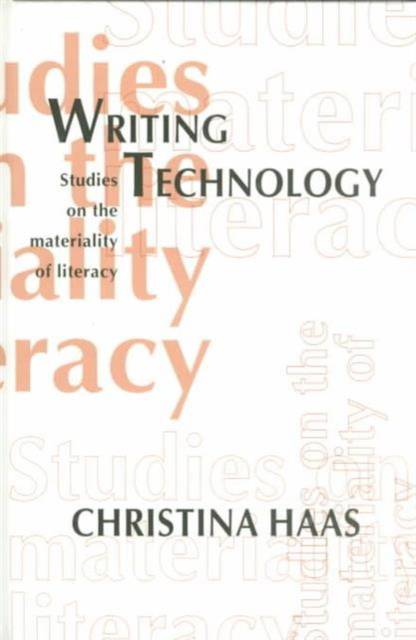
Door een staking bij bpost kan je online bestelling op dit moment iets langer onderweg zijn dan voorzien. Dringend iets nodig? Onze winkels ontvangen jou met open armen!
- Afhalen na 1 uur in een winkel met voorraad
- Gratis thuislevering in België vanaf € 30
- Ruim aanbod met 7 miljoen producten
Door een staking bij bpost kan je online bestelling op dit moment iets langer onderweg zijn dan voorzien. Dringend iets nodig? Onze winkels ontvangen jou met open armen!
- Afhalen na 1 uur in een winkel met voorraad
- Gratis thuislevering in België vanaf € 30
- Ruim aanbod met 7 miljoen producten
Zoeken
€ 274,95
+ 549 punten
Uitvoering
Omschrijving
Academic and practitioner journals in fields from electronics to business to language studies, as well as the popular press, have for over a decade been proclaiming the arrival of the "computer revolution" and making far-reaching claims about the impact of computers on modern western culture. Implicit in many arguments about the revolutionary power of computers is the assumption that communication, language, and words are intimately tied to culture -- that the computer's transformation of communication means a transformation, a revolutionizing, of culture. Moving from a vague sense that writing is profoundly different with different material and technological tools to an understanding of how such tools can and will change writing, writers, written forms, and writing's functions is not a simple matter. Further, the question of whether -- and how -- changes in individual writers' experiences with new technologies translate into large-scale, cultural "revolutions" remains unresolved. This book is about the relationship of writing to its technologies. It uses history, theory and empirical research to argue that the effects of computer technologies on literacy are complex, always incomplete, and far from unitary -- despite a great deal of popular and even scholarly discourse about the inevitability of the computer revolution. The author argues that just as computers impact on discourse, discourse itself impacts technology and explains how technology is used in educational settings and beyond.
Specificaties
Betrokkenen
- Auteur(s):
- Uitgeverij:
Inhoud
- Aantal bladzijden:
- 304
- Taal:
- Engels
Eigenschappen
- Productcode (EAN):
- 9780805813067
- Verschijningsdatum:
- 1/11/1995
- Uitvoering:
- Hardcover
- Formaat:
- Genaaid
- Afmetingen:
- 158 mm x 234 mm
- Gewicht:
- 675 g

Alleen bij Standaard Boekhandel
+ 549 punten op je klantenkaart van Standaard Boekhandel
Beoordelingen
We publiceren alleen reviews die voldoen aan de voorwaarden voor reviews. Bekijk onze voorwaarden voor reviews.











